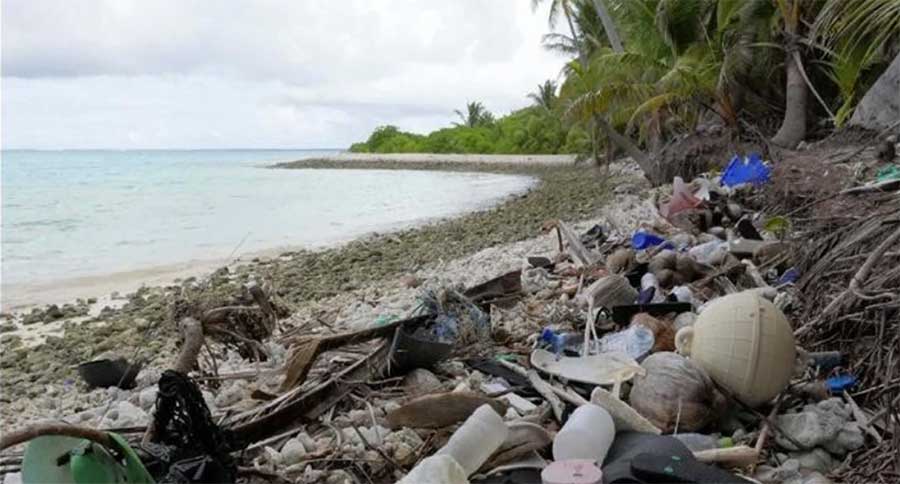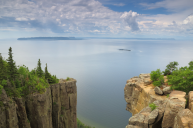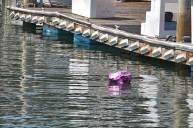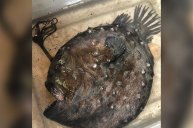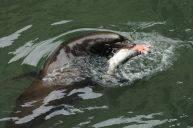This remote spot in the UK's Pitcairn Islands territory has been deemed the most plastic-polluted place on Earth.
Research from the University of Tasmania and the IMAS - Institute for Marine and Antarctic Studies has revealed "the highest density of plastic debris reported anywhere on the planet."
Despite being uninhabited and visited only once every 5-10 years, Henderson Island in the South Pacific was deemed to have an estimated 37.7 million pieces of plastic.
The island's location near the center of the South Pacific Gyre ocean current makes it a prime spot for debris carried from South America or deposited by fishing boats.
Most of the trash is plastic, which doesn't break down but instead tears into "hundreds, or thousands, or millions of micro plastic particles," according to scientist Dr. Jennifer Lavers, who fronted the study.
More recent research has revealed that this isn't an issue singularly affecting remote, unvisited locations. The Coco Islands, a tropical retreat for tourists with white sand beaches and clear, blue water, have also been found to be covered in an estimated 414 million pieces of trash.
Long thought to be immune from the typical human-caused pollution problems that have plagued populated areas, the Coco Islands will hopefully open the eyes of the decision makers and bring the plastic pollution problem to the forefront of conservation efforts.
It's isn't just unsightly; the damage to the marine environment could very well cause a serious waste management issue.
Here's Dr. Lavers with more:
The biggest issue is single-use plastic objectss, like disposable water bottles, plastic bags, and food containers, that make up the bulk of the pollution.
The amount of plastic waste is disheartening, but it's the human negligence that's most disturbing. The world's oceans can't handle that much trash, and if we don't make significant changes in the way we consume, there may be little hope in turning things around.
Marine animals, such as sea turtles or dolphins, can be duped by ocean plastic, mistaking them for food and posing serious threats to their health and well-being. The effects can move up or down the food chain, making marine plastic one of the biggest threats the oceans are facing.
If we want to make a change to the environmental impact we're having on marine ecosystems, it starts with this.
NEXT: NATIVE TEXAS SON JT VAN ZANDT SAYS IT'S NOW OR NEVER
WATCH: USFWS: PLEASE DON'T RELEASE YOUR BALLOONS
